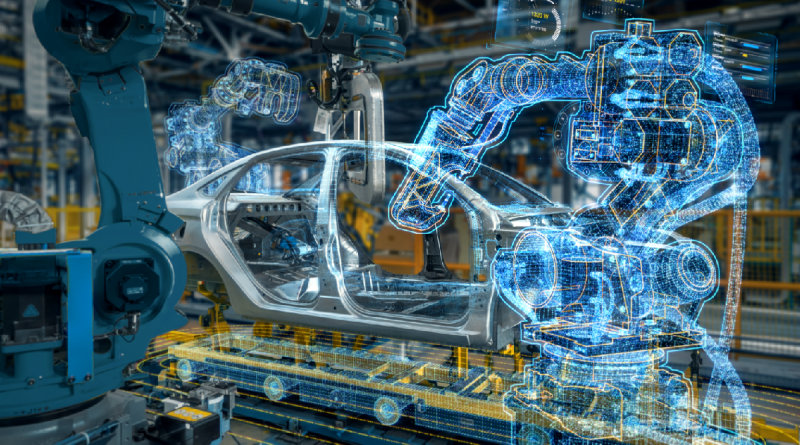Generative AI, a subset of artificial intelligence that involves creating new data from existing information, is revolutionizing various industries, including human resource (HR) and workforce management. By leveraging the power of machine learning, natural language processing, and data analytics, generative AI is transforming traditional HR practices and enabling more efficient, personalized, and strategic approaches to managing talent. This article explores the profound impact of generative AI on HR and workforce management, highlighting its benefits and implications.
- Enhancing Recruitment and Talent Acquisition
Generative AI is significantly enhancing the recruitment and talent acquisition process by automating and optimizing various stages, from job postings to candidate selection.
- Automated Job Descriptions: Generative AI can create detailed, tailored job descriptions that attract the right candidates by analyzing successful job postings and industry trends.
- Candidate Sourcing: AI-powered tools can identify and engage potential candidates across various platforms, including social media, job boards, and professional networks.
- Resume Screening: AI algorithms can quickly screen resumes, identifying the most suitable candidates based on predefined criteria and reducing the time spent on manual reviews.
These advancements result in a more efficient recruitment process, enabling HR teams to focus on strategic decision-making and personal interactions with candidates.
- Improving Employee Engagement and Retention
Employee engagement and retention are critical for organizational success. Generative AI is helping HR professionals understand and enhance employee satisfaction by analyzing various data points and generating insights.
- Personalized Employee Experiences: AI can create personalized onboarding and training programs based on individual employee profiles, improving engagement from the start.
- Sentiment Analysis: By analyzing employee feedback, surveys, and communication, AI tools can gauge employee sentiment and identify potential issues before they escalate.
- Career Pathing: AI can generate personalized career development plans, helping employees see clear progression paths within the organization, which can improve retention.
These applications of generative AI contribute to a more engaged and motivated workforce, reducing turnover rates and fostering a positive work environment.
- Enhancing Learning and Development
Generative AI is revolutionizing learning and development (L&D) programs by creating personalized, adaptive learning experiences that cater to individual needs and preferences.
- Adaptive Learning: AI-driven platforms can adjust content and difficulty levels based on the learner’s progress and performance, ensuring effective knowledge retention.
- Content Generation: Generative AI can create custom training materials, such as quizzes, simulations, and interactive modules, tailored to specific skills and roles.
- Continuous Feedback: AI tools can provide real-time feedback to learners, helping them identify areas for improvement and stay motivated.
By leveraging generative AI in L&D, organizations can ensure their employees continuously develop the skills needed to thrive in an ever-changing work environment.
- Streamlining Administrative Tasks
Administrative tasks can be time-consuming and repetitive. Generative AI is automating many of these tasks, freeing up HR professionals to focus on more strategic initiatives.
- Automated Documentation: AI can generate and manage various HR documents, such as employment contracts, performance reviews, and compliance reports, reducing administrative burden.
- Chatbots and Virtual Assistants: AI-powered chatbots can handle employee inquiries, provide information on HR policies, and assist with routine tasks like scheduling and leave requests.
- Data Management: AI tools can organize and analyze large volumes of HR data, providing actionable insights and improving decision-making processes.
These applications of generative AI result in increased efficiency and productivity within HR departments.
- Facilitating Diversity and Inclusion
Generative AI can play a crucial role in promoting diversity and inclusion within organizations by eliminating biases and ensuring fair practices.
- Bias Detection: AI algorithms can identify and mitigate biases in job descriptions, recruitment processes, and performance evaluations, promoting a more inclusive workplace.
- Diverse Talent Pools: AI can help identify diverse talent by analyzing various data sources and ensuring a wide range of candidates are considered.
- Inclusive Policies: AI tools can analyze the effectiveness of diversity and inclusion initiatives, providing recommendations for improvement.
By leveraging generative AI, organizations can create a more equitable and inclusive work environment, enhancing their overall culture and performance.
Conclusion
Generative AI is transforming HR and workforce management by enhancing recruitment, improving employee engagement and retention, revolutionizing learning and development, streamlining administrative tasks, and promoting diversity and inclusion. While challenges and ethical considerations remain, the benefits of AI-driven HR practices are substantial. By embracing generative AI, organizations can create more efficient, personalized, and strategic approaches to managing talent, ensuring they remain competitive in an ever-evolving global landscape.

Leave a Reply